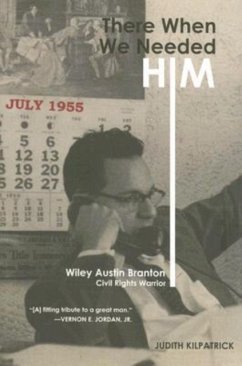Supreme Court Justice Thurgood Marshall said of Wiley Austin Branton that he ?devoted his entire life to fighting for his own people.? There When We Needed Him is the story of that fight, which began with Branton's being one of the first black students at the University of Arkansas Law School and which took him to the highest levels of business and government. From his private law practice in Pine Bluff, Arkansas, Branton became, along with Marshall, counsel for the Little Rock Nine in their 1957 efforts to integrate Central High School. Under his leadership of the Atlanta-based Voter Education Project, more than six hundred thousand black voters were registered from 1962 to 1965. He later became executive secretary of President Lyndon Johnson's Council on Equal Opportunity and special assistant to attorneys general Nicholas Katzenbach and Ramsey Clark. He provided leadership to the United Planning Organization, the Alliance for Labor Action, and the NAACP; and he was dean of Howard University Law School. At Branton?s funeral in 1988, former Arkansas senator David Pryor described him as ?quiet and unassuming. . . . It is his humility and desire to always put the goals of the civil rights movement before self which probably accounts for the fact that [he] was not more famous than he was.? The influence of this quiet and unassuming man continues to be felt decades later.
Hinweis: Dieser Artikel kann nur an eine deutsche Lieferadresse ausgeliefert werden.
Hinweis: Dieser Artikel kann nur an eine deutsche Lieferadresse ausgeliefert werden.








